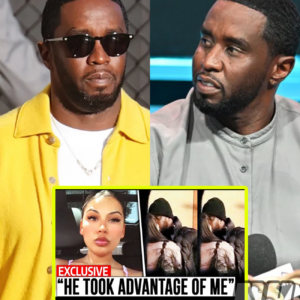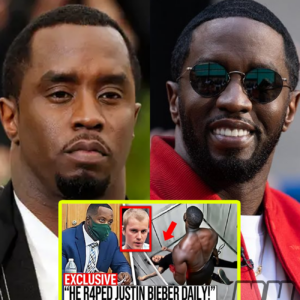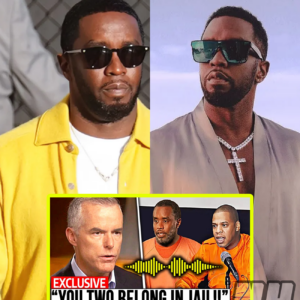Statute of Limitations: An Overview

The statute of limitations is a law that sets the maximum time after an event within which legal proceedings may be initiated. Once this period expires, claims are typically barred. The rationale behind this legal doctrine is twofold:
- Preservation of Evidence: Over time, evidence can deteriorate, witnesses may become unavailable, and memories can fade, making it challenging to ensure a fair trial.
Legal Certainty: It provides defendants with a degree of certainty and closure, protecting them from perpetual threat of litigation.
Different Time Limits for Different Crimes
The length of the statute of limitations varies depending on the type of crime:
Murder: Generally, there is no statute of limitations for murder in most jurisdictions.
Sexual Assault: The statute of limitations for sexual assault can vary widely. In federal court, there is no statute of limitations for certain types of rape and sexual assault, reflecting the gravity of these offenses.
Civil vs. Criminal Cases
Cassie’s lawsuit against Diddy, like many others that have surfaced, is a civil case rather than a criminal one. Understanding the distinction between these two types of cases is essential:
Criminal Cases
Prosecution: Initiated by the state or federal government.
Burden of Proof: The prosecution must prove the defendant’s guilt “beyond a reasonable doubt,” the highest standard of proof.
Penalties: May include imprisonment, fines, community service, or probation.
Civil Cases
Parties: Typically involve private parties or organizations suing for damages.
Burden of Proof: The plaintiff must prove their case by a “preponderance of the evidence,” a lower standard than in criminal cases.
Remedies: Usually involve monetary compensation or injunctive relief rather than criminal penalties.
A notable example illustrating these differences is the case of O.J. Simpson. Although Simpson was acquitted in the criminal trial for the murder of Nicole Brown Simpson, he was found liable in the subsequent civil trial and ordered to pay damages to the victim’s family.
Recent Developments in Allegations Against Diddy
Following Cassie’s case, several other allegations have emerged against Diddy, further complicating his legal and public standing:
Rodney “Lil Rod” Jones
Jones has filed a lawsuit accusing Diddy of operating a racketeering enterprise, groping him, forcing him to engage in sexual acts with sex workers, and lacing alcohol for guests, including underage girls. Jones claims to have hundreds of hours of video and audio evidence documenting these events, which he was required to record as part of his work with Diddy.
Jane Doe’s Allegations
A woman, using the pseudonym Jane Doe, has also filed a lawsuit against Diddy and his associates. She alleges that when she was 17, she was flown to New York, drugged, and gang-raped by Diddy and his associates. This incident reportedly occurred after being coerced to accompany Diddy’s associates to his recording studio.
Joy Dickerson Neal
Another lawsuit, filed by Joy Dickerson Neal, accuses Diddy of sexual assault and abuse dating back to 1991. Diddy’s legal team has moved to dismiss parts of this lawsuit, arguing that some claims were brought under laws that didn’t exist at the time and against companies not formed during the alleged incidents.
Legal and Social Implications
The wave of allegations against Diddy underscores several critical issues:
Victim Courage: Cassie’s willingness to come forward has inspired other victims to share their stories, reflecting a broader societal shift towards supporting survivors of sexual assault.
Evidentiary Challenges: As highlighted by the statute of limitations, gathering and preserving evidence for incidents that occurred years ago remains a significant hurdle in achieving justice.
Public Perception: High-profile cases like these influence public opinion and raise awareness about the prevalence and severity of sexual assault and misconduct in the entertainment industry.
Conclusion
The legal battles facing Diddy, especially in light of the new evidence and additional allegations, serve as a stark reminder of the complexities involved in prosecuting long-standing sexual assault cases. While the statute of limitations serves a critical purpose in ensuring fair trials, it also presents challenges for victims seeking justice years after the fact. The distinction between civil and criminal cases further complicates these matters, highlighting the different burdens of proof and potential outcomes. As more victims come forward, the legal and social landscapes continue to evolve, hopefully leading to greater accountability and support for survivors.
News
(VIDEO) Celebs that P Diddy EXPLOITED for Cash
P Diddy and the Dark Side of the Entertainment Industry The entertainment industry is no stranger to scandal and controversy, but the recent revelations surrounding P Diddy (Sean Combs) have brought to light a web of disturbing allegations and connections…
(VIDEO) Kevin Hart IN TEARS After New Leaks EXPOSE Him At Diddy’s After Parties!!
Kevin Hart: A Complex Journey Through Fame, Scandal, and Personal Growth Kevin Hart, the renowned comedian and actor, has led a life marked by both incredible professional success and deeply personal scandals. His journey from selling sneakers to becoming one…
(VIDEO) “He Ruined My Life” Former Diddy Employees TEAM UP To EXPOSE Him!
The Dark Side of Fame: Allegations Against Diddy and the Revelations from Former Employees The music industry is often glamorized for its glitz and glamour, but behind the scenes, it can harbor dark secrets and troubling behavior. Recently, Sean “Diddy”…
(VIDEO) “He’s Why Justin Bieber Is DEPRESSED!” Undercover FBI Agent EXPOSES Diddy
The Tumultuous History of Snoop Dogg, P. Diddy, and the East Coast-West Coast Rivalry Hip-hop history is fraught with feuds, friendships, and ever-changing alliances. Central to many of these stories are iconic figures such as Snoop Dogg and P. Diddy…
(VIDEO) “Diddy Did Usher Dirty Forever” Snoop Dogg EXPOSES Sean Combs!
The Tumultuous History of Snoop Dogg, P. Diddy, and the East Coast-West Coast Rivalry Hip-hop history is fraught with feuds, friendships, and ever-changing alliances. Central to many of these stories are iconic figures such as Snoop Dogg and P. Diddy…
(VIDEO) Undercover CIA Agent EXPOSES Diddy & Jay Z!
The Fall of P. Diddy: A Dismantling of Credibility and the Unfolding Legal Crisis Introduction In recent years, Sean “P. Diddy” Combs has found himself at the epicenter of numerous controversies and legal battles that have significantly tarnished his once-polished…
End of content
No more pages to load











